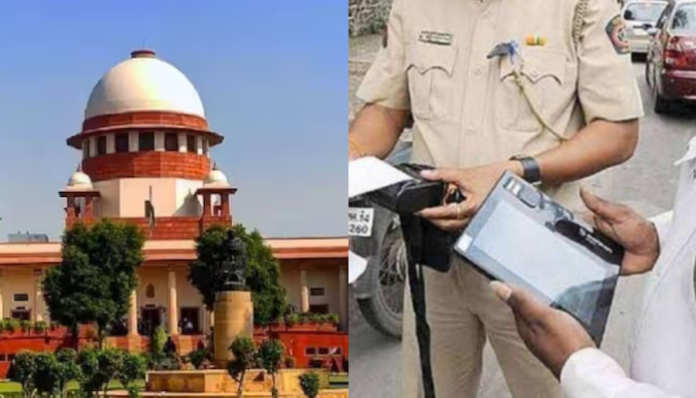In a major shift to boost road safety and bring errant drivers to task, the government plans tough steps against those who ignore traffic violations. Starting April 1, your driver’s license might face suspension if you have unpaid traffic challans sitting in your account. This strict move aims to force better roads while making every driver follow rules set by authorities.
What This Change Means for Drivers
The fresh rules apply to all types of motor vehicle users across the country. Under these plans, those who leave their traffic tickets unpaid beyond. A given period would first get notice from local police about their unpaid fines. After that point, if you still avoid making those payments, your legal right to drive could be taken away until you clear those debts.
Traffic police units in many major cities have already begun system tests to make this shift happen smoothly when April comes. They focus their first round of action on those with three or more unpaid fines in their record.
“We found many people simply ignore these fines since there wasn’t any major impact on their daily lives,” noted a senior traffic police official. “This tough stance would make every driver think twice before breaking rules again.”
How You Can Check Your Unpaid Challans Status
Before panic takes over, you should visit the official traffic police portal for your state or city to check if any unpaid fines exist under your name. Follow these basic steps:
- Visit your local traffic police website
- Enter your vehicle number plate details
- Check if any unpaid fines appear in the system
- Clear those fines using online money transfer options
Most state police units offer simple online paths to make these tasks easy for users. Mobile phone apps have also been rolled out in many areas where you can track and clear all your unpaid fines.
Unpaid Challans: Legal Basis for This Action
The legal power behind this comes from the Motor Vehicles Act amendments, which allow state units to take tough steps against those who avoid paying their traffic fines. These rules, which have existed in books for years, have rarely been used until this point.
“These legal terms have always given us the right to cancel. Hold back driver permits if people don’t follow rules,” said a legal expert from the transport office. “What we’re doing right now is simply using those powers which were never fully applied before.”
The focus stays on making roads safer while making sure all motor users share equal parts in that drive. Every penny from these fines would go toward state funds meant for road safety works.
Unpaid Challans: Major Cities Leading This Effort
Delhi, Mumbai, and other major urban areas have made clear their plans to start with those who have large sums of unpaid fines. Their first stage would target those whose total unpaid amount goes above 5,000 rupees.
Traffic police units have built joint teams with local RTO cells. To share their data, which makes this whole drive much more solid than prior tries. These teams would meet often to track how many cases they solve each month.
“Our main point isn’t just making money from fines but truly making those who break rules learn their lesson,” added another senior road safety group member. “When their right to drive faces real risks, most people would think about their habit of ignoring those small paper slips.”
What Happens After Suspension Unpaid Challans
Once your license faces this type of hold, you would need to clear every fine plus pay some extra fees to have your permit made valid again. This whole thing could waste many hours, which might affect your daily work life.
The actual steps to get your license back would vary based on which state you live in. Most areas would need you to visit their RTO once all fines have been paid with proof of those payments.
“This isn’t meant to cause major pain, but these small costs teach better than just empty words,” stated a state motor group leader. “Those who drive right don’t need to worry since this won’t touch them at all.”
Public Views Mixed on This Issue
While many civic group teams praise this action as long needed. Some daily users have shown their fears about how this might be used wrong by field staff. Those views focus mostly on fears about false cases being filed, which could force them into legal fights.
Given these mixed views, most state units plan to start their first phase with clear cases that have proof like speed camera shots or video proof, which can’t be argued against.
“We know there have been cases where wrong fines were given, which makes trust an issue,” noted a civil group head. “That’s why these first steps would stick with solid proof cases.”
Final Words
This major shift in how our roads get managed marks a clear point in making every drive safer for all. Those who still have time should check their status right away. Clear those fines before April starts to avoid any risks to their daily driving needs.
Road rules exist to keep every person safe, and these tough moves might just make that point clear again.








Be First to Comment